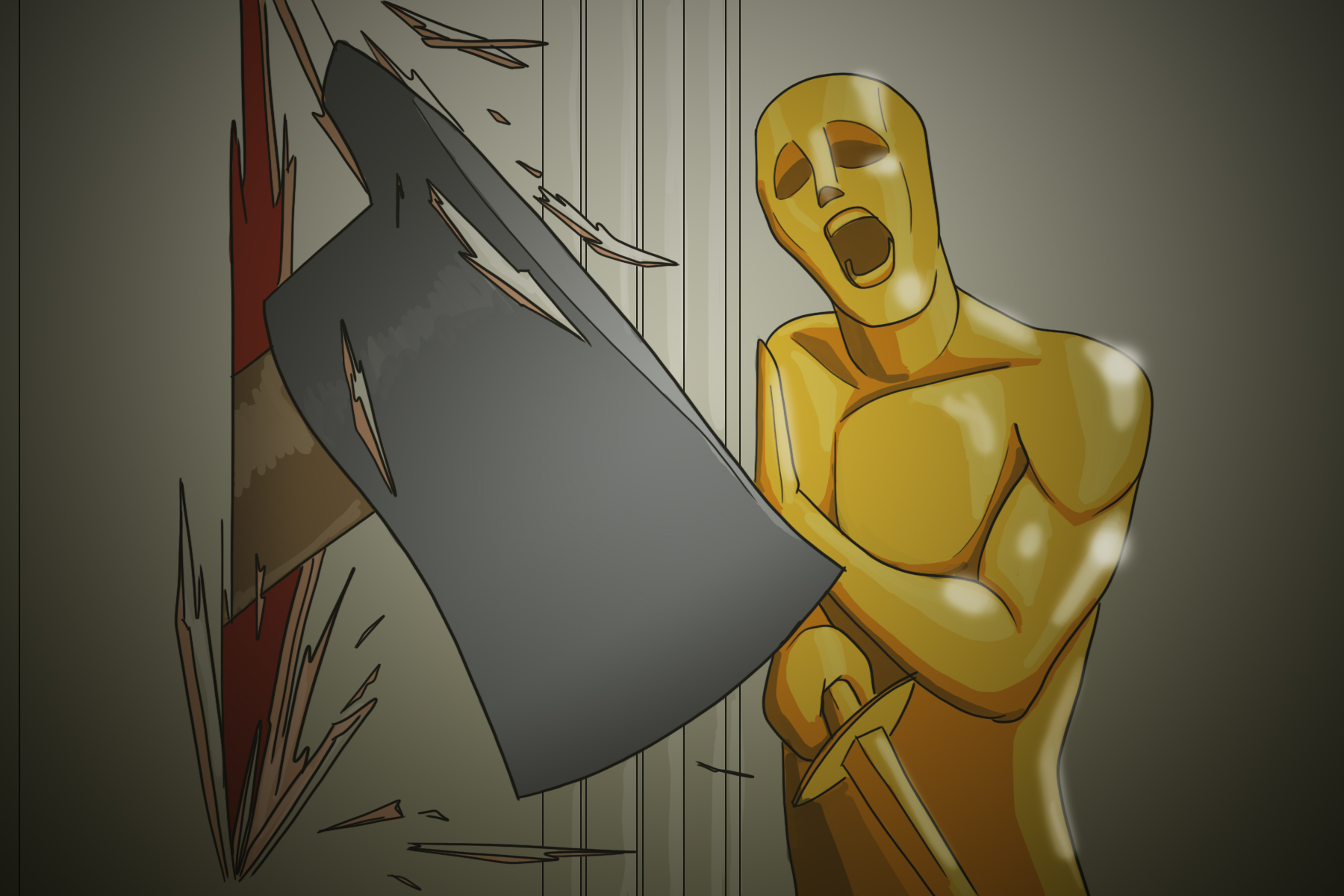The Academy of Motion Picture Arts and Sciences has always had a rocky relationship with films that exist outside of lavish period dramas and biopics, but there seems to be no genre the Oscars hate more than the horror movie.
In the 91 years that the Oscars have existed, of the 546 films ever nominated for the best picture, only six have been horror movies. This number comes from extending definition of the term “horror” to include related, but not necessarily synonymous subgenres, such as the psychological thriller. For quick reference (and because it’s not a particularly long list), the six horror films that have been nominated for the best picture are: “The Exorcist,” “Jaws,” “The Silence of the Lambs,” “The Sixth Sense,” “Black Swan” and “Get Out.”
On top of this paltry list, “The Exorcist” earned its nomination at the 46th Annual Academy Awards, meaning that the Oscars initially ignored the horror genre for four decades. In the span between the Oscar’s inaugural year and its first horror best picture nominee is a laundry list of the genre’s legendary prognosticators. Films like “Frankenstein,” “Night of the Living Dead,” “Psycho,” and “Rosemary’s Baby” failed to crack the top category. Additionally, “The Shining,” received no Oscar nominations at all despite it and its iconography being one of the most thoroughly referenced and studied in cinematic history.
So, how did these six movies break the horror curse and clear the bar?
There’s a pervading sense that in order for a horror movie to receive recognition from Academy, it has to trick its way into nominations. For most of these Academy-approved horror movies, there is a difference between the stories they present and the type of guts-and-gore, cabin-in-the-woods, screaming-bloody-murder tropes that have become associated with, and have come to define most entries in the genre.
Ted Tally, the screenwriter of “The Silence of the Lambs,” told Rolling Stone that he never saw the movie as a horror, despite the label attaching itself to the film retroactively. Similarly, writer and director of “Get Out,” Jordan Peele seemed to resist his film’s association with the genre. While promoting the movie, Peele explained that while the film was always envisioned in the horror vein, the finished product more closely resembled the outlines of a thriller.
It appears that horror movies can worm their way into the hearts, minds and ballots of Academy voters only when they don’t seem very much like horror movies at all.
The Oscars have historically wrestled with how to reward popular, while often ignoring action, comedy and sci-fi. But of all the popcorn genres, horror always seemed to cross a line. Maybe it was the appeal to the most primal of human urges, the preoccupation with the gross and weird. Perhaps, it was horror’s appeal to the macabre fascination, or maybe the voters are just squeamish. Whatever created the Academy’s distaste for the horror film, it just happened to collide perfectly with their distrust of the popular.
It’s a created narrative that implies horror and prestige are mutually exclusive, and as an extension of that, popular things are inherently less worthy of acclaim. This idea seems to be deeply ingrained into the Academy’s voting body (which, as of 2016, was still overwhelmingly white and male), and shows no signs of leaving.
The ostensible signs of progress Oscars attempt, point more to desperation. “Black Panther” made headlines when it was announced in the most recent batch of best picture nominees for being the first superhero movie to ever be nominated for the award. To any casual viewer, this may appear as a step for the world’s most prestigious film awards to acknowledge a broader range of films in a given year, and to more accurately reflect the taste of a general public.
However, the inclusion of “Black Panther,” an undoubtedly popular movie, could also be viewed as a response to the consistently declining live-viewing numbers, leading to an all-time low in 2018. But, to add to this, a series of strange and seemingly random bids to regain relevancy have made the lead-up to this year’s Oscars.
Months before the nominations, Academy announced the introduction of an award for best popular movie. Further details on how a film might be eligible were never announced, but it was generally understood that a popular box-office hit would walk away with a trophy on the big night.
It was likened to an MTV Movie Award or People’s Choice Award. The popular movie category was also called into question for appearing to ghettoize films like “Black Panther” or “Crazy Rich Asians,” movies that attracted huge audiences, critical acclaim and even massive box office returns, but were outside of the small genre bubble the Oscars were comfortable rewarding. The implications of the category were clear and the Academy quickly withdrew it.
The abandoned award was coupled with another fumble. Following Kevin Hart’s decision to drop out as a host for this year’s Oscars telecast — and his refusal to apologize for homophobic tweets on his bizarre, drawn-out apology tour — the Academy did not move to replace him (perhaps with a woman or queer person) but has allegedly decided not to have a host at all. It was as if the Academy, the storied institution and tastemaker for movie-watching audiences around the world, refused to admit its mistake, and instead of making a decisive move into the future, it chose to ignore the problem entirely.
Considering all this, the fact becomes obvious: the Oscars, in its unfailing obsession with prestige, have become dizzyingly out of touch.
Lamenting over the Oscar’s snubbing certain movies is an entirely pointless task. There are swaths of deserving films that get shut out every year. But the fact is, some of last year’s best horror movies — and best movies in general — such as the haunting “Hereditary” or the unbelievably tense “A Quiet Place” never even stood a chance.
A horror movie, or more generally, a movie made to be enjoyed by masses of people, seems to have grown a deep reputation with voters as a work underserving of recognition. It’s this exact mindset that has led the Oscars into its unfortunate free fall into irrelevancy.
















